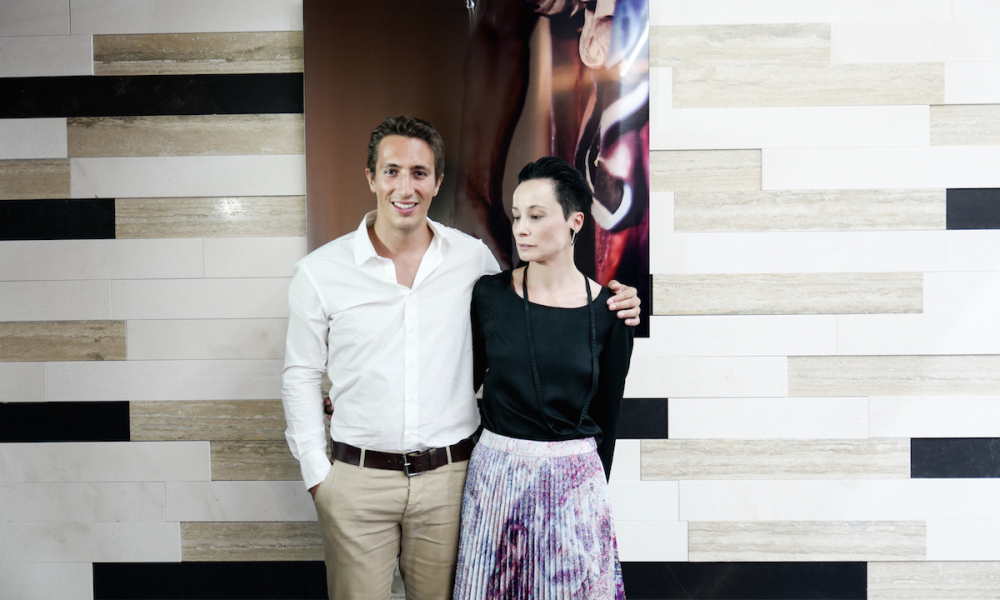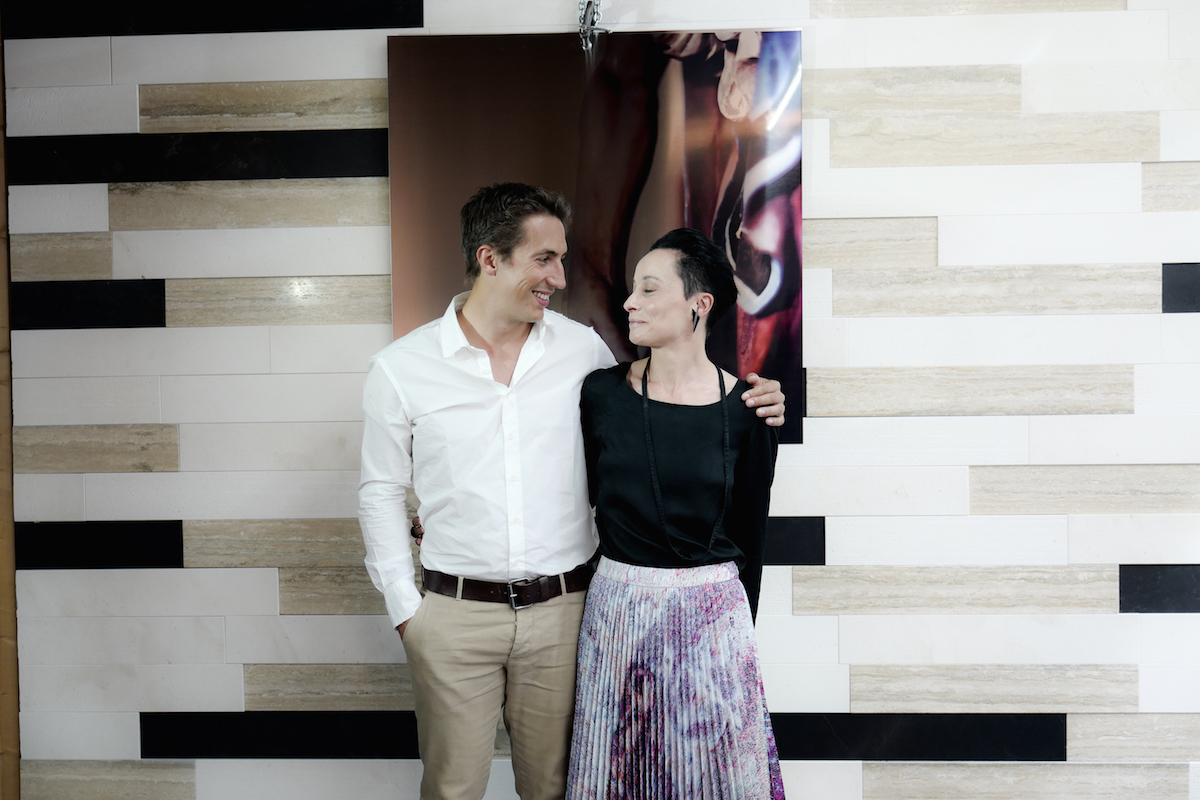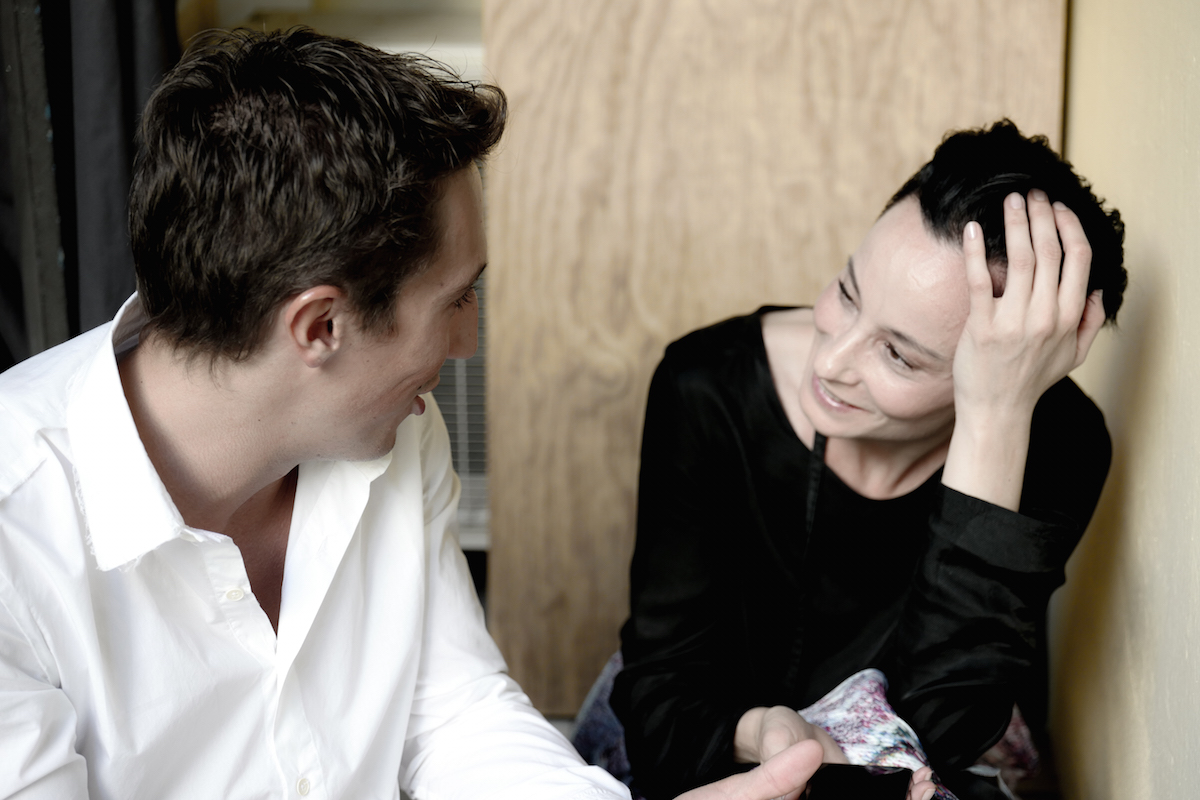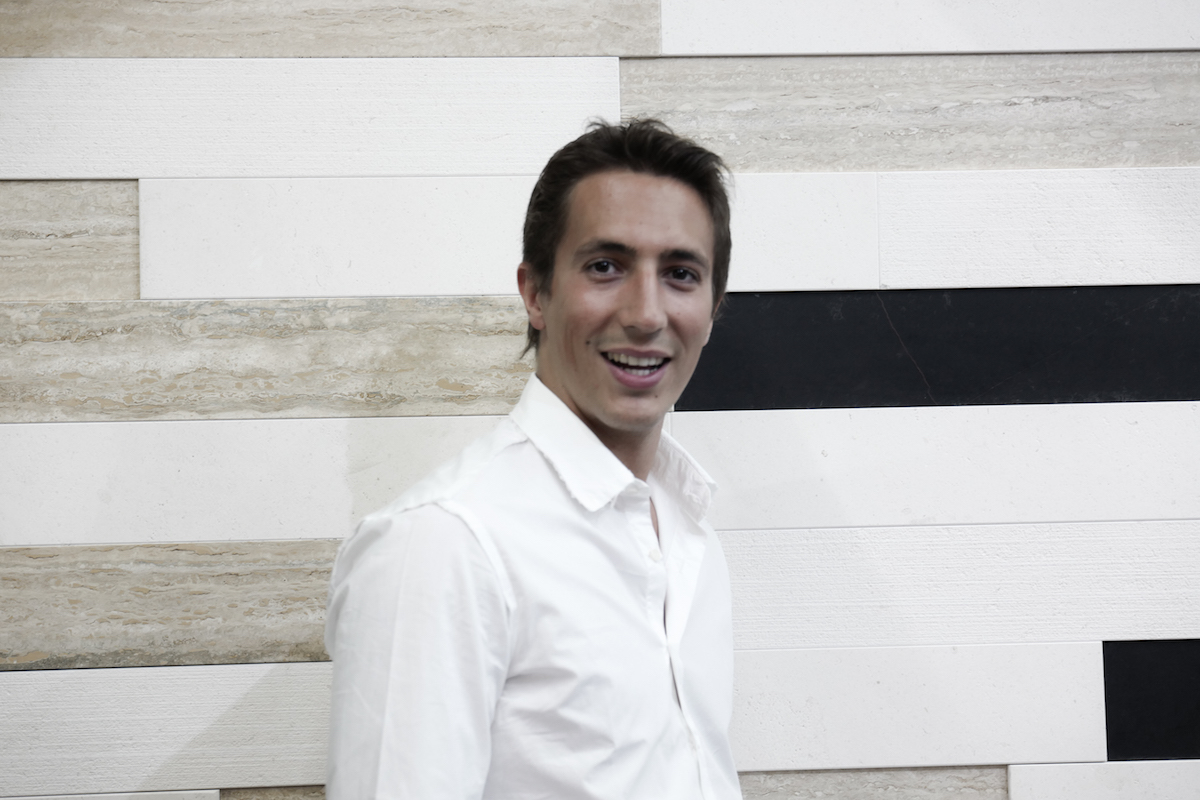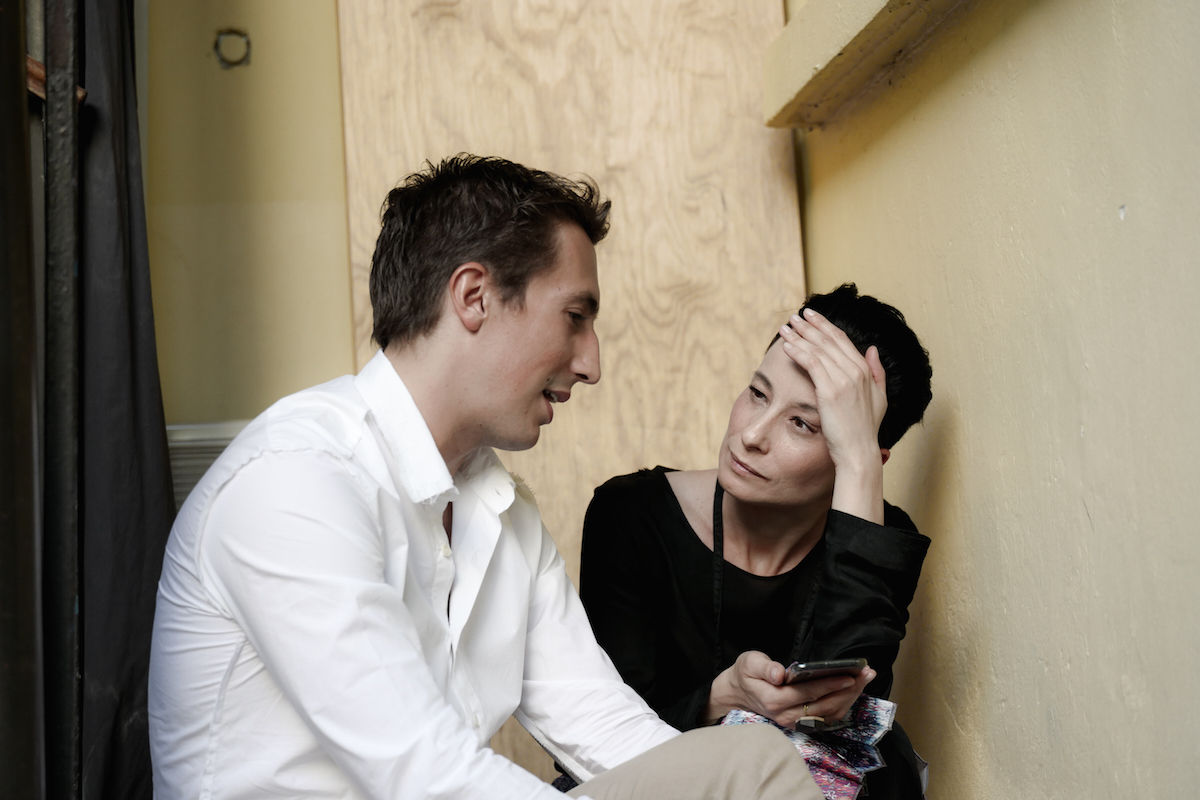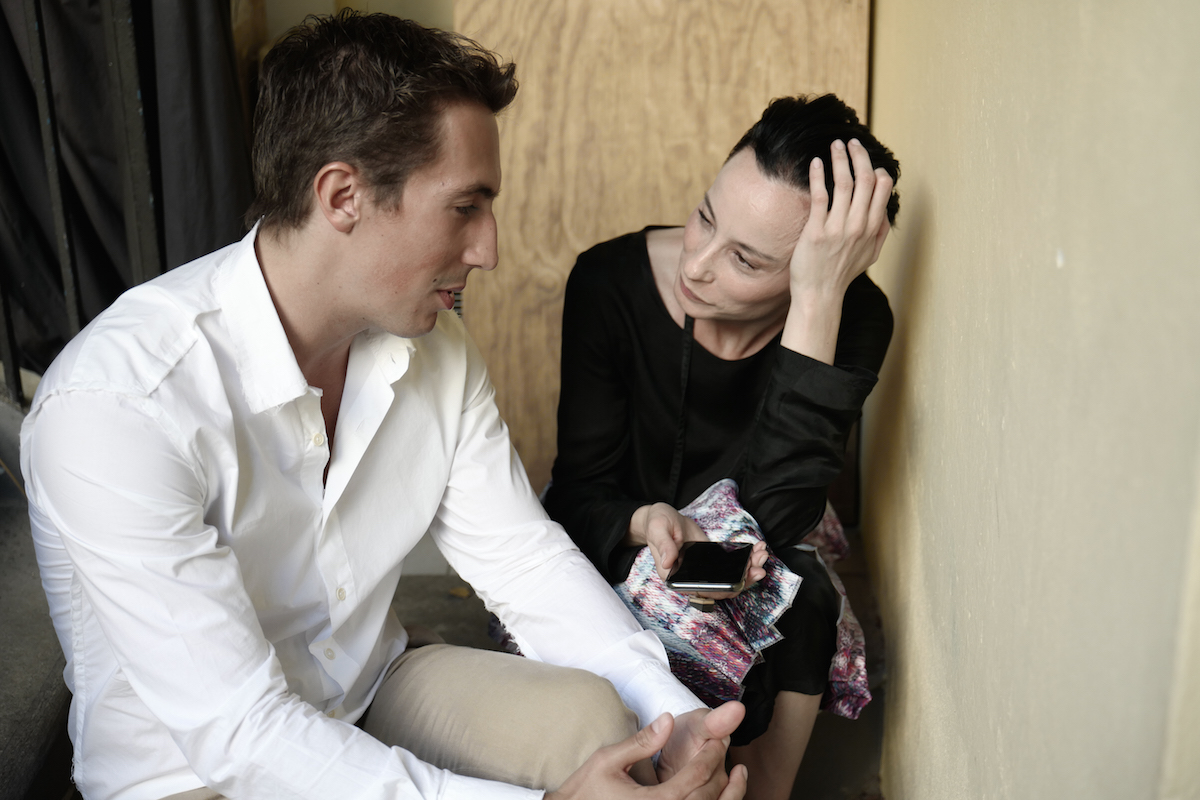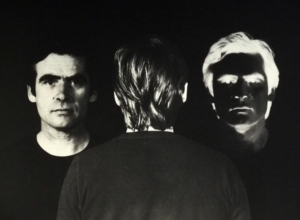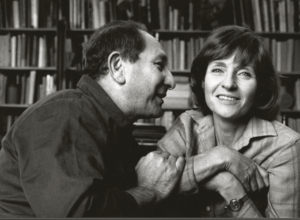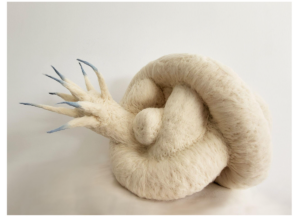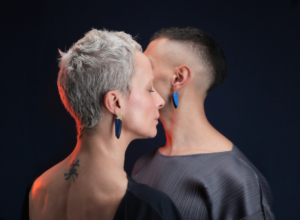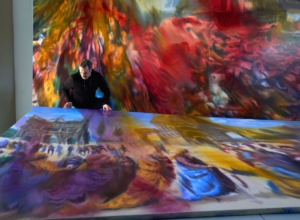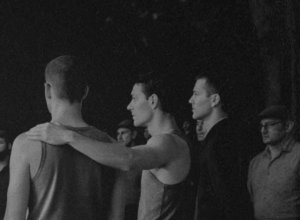Finito lo spettacolo ho provato un sentimento di passione, di amore, una cosa che non avevo mai sentito prima, una felicità quasi sovrumana!
F: C’è una emozione ineffabile che si sprigiona dalle tue parole, in questo incipit, mentre guardo i tuoi occhi pieni di una gioia straripante, la gioia della scoperta penso. Ma come è successo? Come è avvenuto l’incontro con la recitazione?
N: In maniera del tutto casuale direi. Non potevo più giocare a basket e c’era questo corso di teatro organizzato dalla mia scuola. A dire il vero si saltavano due ore di lezione e allora ho pensato: perché no? Ma è stato lì che ho incontrato quella che poi si è rivelata una figura fondamentale per il mio percorso, la regista teatrale e insegnate insegnante Michela Cursi. Tant’è che quando ho iniziato a parlare con lei è nata subito una connessione particolare, come se mi sentissi a mio agio tra le sue braccia. Il primo anno ho avuto il ruolo di protagonista nella commedia E’ una caratteristica di famiglia di Ray Cooney e poi, per tutti gli anni successivi, mi ha sempre assegnato il ruolo principale.
F: Un innamoramento fulmineo che ti catapulta dal palcoscenico del Teatro Eden di Treviso direttamente a New York, alla Film Academy, a studiare acting for film e musical theatre mosso dalla consapevolezza di voler intraprendere la carriera di attore. Non è cosa da tutti, voglio dire questa determinazione che in qualche modo non ti ha mai fatto perdere l’orientamento nonostante la tua giovane età.
N: Una certezza che ho sempre avuto dentro di me, fin dagli esordi, da quel giorno del debutto. Infatti appena concluso il corso a New York ho capito che recitare sarebbe stato il mio futuro. Ecco perché al rientro in Italia ho iniziato subito con le audizioni, senza perdere tempo. Quella per l’AMDA (College and Conservatory of the Performing Arts) l’ho sostenuta una settimana dopo gli esami di maturità e dopo un mese di attesa mi hanno dato la bella notizia: ero stato accettato! Felicissimo sono quindi partito alla volta di Los Angeles. Era il gennaio del 2014, avevo vent’anni, conoscevo poco e male l’inglese, nessun amico, non sapevo nulla del mondo in cui mi sarei ritrovato. Che c’era caldo a Los Angeles, questo si lo sapevo, e allora mi sono presentato con una t-shirt e i pantaloncini corti.
F: Si ha la sensazione, almeno da qui, di una città scintillante; penso a Hollywood in particolare, così appariscente. Ma immagino che viverla sia stata tutt’altra cosa! Trovarsi in un Paese completamente nuovo, nella realtà del college, con ragazzi di tutte le nazionalità, le difficoltà con la lingua. Deve essere stato un impatto forte e straniante insieme.
N: All’inizio vai lì ed è come andare un po’ in vacanza, non hai bene la percezione di quello che ti aspetta. E’ stato a metà corso che ho iniziato a sentirmi solo, mi mancava la famiglia, mi mancava l’Italia. Mi ricordo che non avevo l’auto e giravo in bicicletta per Los Angeles, una città così dispersiva e caotica. Partivo ogni mattina alle sette con mille borse e cambi e arrivavo a casa la sera distrutto. Allora ho fatto più in fretta che potevo, mi sono laureato in due anni e otto mesi anziché in quattro, senza mai fare pause, e finito il college ho provato a ottenere l’OPT che è il visto lavorativo di durata annuale che può richiedere chi ha frequentato il college in America.
F: Un ragazzo bello e giovane e con quell’accento italiano che rischia di tenerti prigioniero dentro il cliché, lo stereotipo dell’italianità di cui è pieno l’immaginario collettivo. Mi torna in mente la scena divertentissima del film Mio cugino Vincenzo in cui Joe Pesci viene deriso dal giudice dell’aula di tribunale per la sua pronuncia, quando dice giovani con un suono che esce come “yoots” anziché youths.
N: Pensa che molte opportunità le ho mancate proprio per il mio accento! Ho dovuto lavorare tanto sulla dizione, bisogna imparare a usare muscoli diversi rispetto a quelli che si usano nella lingua italiana che è molto più melodica dell’americano invece dritto, piatto, solo un sobbalzo sulla parola che si deve stressare. L’altra grande difficoltà è stata connettere i vocaboli alle emozioni perché quando parlo la mia lingua l’emotività è già tutta lì, fa parte del mio bagaglio di vita, invece parlando inglese, con parole che non sono mie, mi sono trovato a volte in grosse difficoltà, faticavo a sentire il momento.
F: C’è anche il rovescio della medaglia però! Perché prima ancora di concludere il percorso di studi David Martin, Presidente e Direttore Artistico dell’AMDA, ti convoca per un provino e ti assegna un ruolo nel suo film che uscirà a breve in America con il titolo The Roman. Una storia di italiani con finale a sorpresa che è certamente una grande soddisfazione e un buonissimo punto di partenza mi pare.
N: Non mi ero ancora laureato e già avevo una parte in un film. Si, non capita tutti i giorni. Ed è stato finora il mio progetto più importante in ambito cinematografico anche perché il regista, durante le riprese, ha aggiunto diverse scene per ampliare l’arco del mio personaggio. Recito insieme a due importanti attrici americane: Stefania Spampinato (Grace Anatomy ndr) e Marina Benedict (Gotham e Prison Break ndr). Nel frattempo anche alcuni short films, qualche comparsata in programmi televisivi e un po’ di teatro. Ho avuto tra gli altri l’onore di poter lavorare all’anteprima mondiale di un’opera di John Patrick Shanley dal titolo Poison.
F: Il teatro e il cinema, due modi diversi di intendere il mestiere di attore? C’è uno spazio in cui senti di vibrare di più?
N: Prima di venire a Los Angeles avrei detto senza indugio che mi piaceva di più il teatro, anche perché era l’unica cosa che avessi mai fatto. Adesso, fresco di esperienza cinematografica, rispondo che non ho ancora scoperto il cinema in modo tale da poterlo amare fino in fondo, è ancora un po’ un sogno che si sta svelando a me piano piano. Sento in qualche modo di essere un theatre baby, mi sento più libero in teatro e sento di avere più il controllo di me stesso, del mio personaggio e della mia perfomance. E poi mi piace il contatto diretto con gli spettatori. Dal loro sguardo, dal modo in cui esternano le loro emozioni, capisco se quello che sto facendo funziona e riesco a modularmi di conseguenza. Una cosa che mi fa sentire molto appagato. Davanti alla macchina da presa invece questa spontaneità è molto ridotta: sei dentro una telecamera, il punto focale è uno solo e non c’è audience. All’inizio ho faticato un po’ a trovare la mia lunghezza d’onda anche per la mia fisicità importante, sono grande, grande nei movimenti, espansivo. Perciò quello su cui ho lavorato di più è stato ridurmi, sapermi diminuire.
F: Trascorso l’anno di validità del visto ritorni in Italia e così mi capita di incontrarti, complice la nostra partecipazione alla video performance dell’artista Francesca Lolli. Eri come in una sorta di limbo in attesa che dall’America arrivasse la notizia dell’accettazione della tua richiesta di O-1, il visto per lavorare come artista. Oggi, con gli occhi pieni di quella stessa gioia straripante con cui abbiamo iniziato questo dialogo tra noi, mi annunci l’imminente partenza. Posso chiederti cosa, anche nei momenti più difficili e incerti, ti ha tenuto così saldo al tuo proposito? E cosa consiglieresti ai ragazzi della tua età che hanno in animo di intraprendere questa carriera?
N: Ho sempre cercato di tradurre in mio favore la rabbia, l’angoscia e la paura di non riuscire. Capovolgendo la situazione, provando a essere propositivo, prendendomi le cose, ogni singola opportunità, e cercando di trarne il massimo. Ai miei coetanei direi sicuramente di provarci se lo desiderano con la consapevolezza che c’è da sudare, come in tutte le cose. E direi a tutti di non abbattersi o sentirsi abbandonati se non si riescono a fare audizioni, se il lavoro non arriva. A me ha molto aiutato fare gruppo, unirmi ad altri ragazzi quando ero al college e realizzare i nostri piccoli progetti perché siamo noi per primi a dover dare lavoro a noi stessi. Ed è quando sei costruttivo che si generano le opportunità e le persone ti cercano.
F: Penso che ogni sogno a suo modo contenga un altro sogno e che poi tutti i sogni, tutti insieme, riescano in qualche modo a coagularsi intorno a temi precisi. I tuoi: recitare, scoprire un mondo lontano e idilliaco, fare dei film, raccontare storie capaci di illuminare e ispirare. Come ti senti oggi che inizi a intravedere la forma dei tuoi desideri?
N: C’è sempre una parte di me insoddisfatta, che scalpita, che pensa a tutto che quello che deve ancora fare, che ha nella mente obiettivi grandi, forse troppo ambiziosi. Però oggi sono felice. Ho iniziato a fare l’attore perché mi è sempre piaciuto vedere le persone provare emozioni e quando quelli che amo gioiscono dei miei successi allora le emozioni sono ancora più intense e incredibili. Penso sia la parte migliore che mi potesse capitare di recitare nel film della mia vita.
Desidero ringraziare per la cortese intervista Nicola Tombacco – web site – Facebook – Instagram
Foto di Barbara Pigazzi
Location Basic Cell, Evolutive Design Exhibition curata da Magda di Siena
NICOLA TOMBACCO, A DREAM CALLED ACTOR (English text)
At the end of the show I had a feeling of passion, of love, something that I’ve never experienced before, a sense of happiness that was out of this world!
F: I can feel an ineffable emotion coming from your words in this moment, while I’m looking into your eyes filled with joy, I think it’s the joy of the discovery. But how did it happen? How did you first discover acting?
N: In a very random way I’d say. I couldn’t play basketball anymore and my high school was offering a theatre workshop which would have let me skip a couple hour of class, so I said, why not? And there I met the one person that would become a fundamental figure for my future, the acting teacher and director Michela Cursi. When I started talking to her I felt a particular connection, I felt comfortable between her arms. The first year, right off the bat, she assigned me the leading role in the play Move Over Mrs. Markham by Ray Cooney and then, during the following years, she has always given me the leading role in every theatre production.
F: A sudden love and the wish to start an acting career moved you from the stage of Treviso straight to New York, at the Film Academy, to study acting for film and musical theatre knowing that you wanted to start an acting career. It’s not everyday business, I mean, your determination somehow didn’t put you off track despite your young age.
N: I’m certain that I always had it inside of me, from the beginning, since the day of the debut. In fact, right after I finished the program in New York I knew that acting would have become my future. That’s why as soon as I got back to Italy I started auditioning for American colleges without wasting time. I’ve attended the audition for AMDA (College and Conservatory of the Performing Arts) a week after my finals and a month later I’ve received the wonderful news: I was accepted! I was extremely happy and so I left for Los Angeles. It was January 2014, I was twenty years old, my English was really bad, I had no friends there and I didn’t know anything about that world. I just knew that in Los Angeles it was hot, so I just showed up with in t-shirt and shorts.
F: One might have the sensation about Los Angeles, at least from our perspective, of a shiny city; I think about Hollywood in particular, it’s so showy. But I think that living there is a completely different business! Finding yourself in a new country, in a college, with people from all around the world, speaking a different language must have been altogether striking and estranging.
N: At the beginning when you get there it’s like being on vacation, you don’t really have the perception of what is about to happen. Half way through my studies I started to feel lonely, I missed my family, I missed Italy. I remember that I didn’t have a car so I’d have to bike through Los Angeles which is both dispersive and chaotic. I’d leave from home every morning at 7am with a thousand of bags and I’d be able to come back only at night, exhausted. So I tried to get through college as quickly as I could, I graduated after two years and eight moths instead of four years, without taking any breaks, and after graduation I obtained the OPT, which is an extension of the student VISA with which you can work for one year within your field of expertise.
F: A handsome and young guy with an Italian accent that keeps you imprisoned inside the cliche, the Italian stereotype known all around the world. I remember that funny scene in the movie My Cousin Vinny in which Joe Pesci is ridiculed by the judge for the pronunciation of “yoots” instead of youths.
N: See, I’ve been turned down from most auditions because of my accent! I really had to work hard on my diction, I need to use different muscles from the ones I’d use speaking Italian which is way more melodic while American is straight forward, flat, with a little stress on the word that carries the thought. The other big difficulty has been connecting the words to the emotions since when I speak my mother tongue all the emotivity is all there already, it’s part of my life luggage, instead while speaking English, using words that aren’t mine, I’ve had big problems, and found it hard to be in the moment.
F: There’s the other side of the coin though! Because prior to graduating college David Martin, AMDA’s President and Artistic Director, calls you in his office for a screen test and gives you a leading role in his feature film The Roman that soon will be released in America. A story of Italians with an unexpected final which gives you a wonderful starting point for your career and I’m sure, huge satisfaction.
N: I didn’t even graduate from College and I was already working on a feature film. Yes, it doesn’t happen everyday. And up to this moment this has been the most important project that I’ve worked on, also because while filming the movie the director has added various scenes to enrich the arch of my character. I shared the screen with two important actresses: Stefania Spampinato (Gray’s Anatomy) and Marina Benedict (Gotham and Prison Break). Meanwhile, I’ve worked on a handful of short films, featured in a few TV shows and did some theatre. Also, I’ve had the honor to be performing for the World Premiere of the play Poison written by the Nobel Prize John Patrick Shanley.
F: Theatre and cinema, are these two worlds different to act in? Which one does resonate with you the most?
N: Before coming to Los Angeles I would have said that I liked theatre the most, also because it was the only thing that I have ever done. But now, fresh from these experiences in TV and film, I say that I haven’t really travelled this world far enough to really fall in love with it. This is still a dream that it’s revealing itself slowly by slowly. Somehow, I see myself as a theatre baby, on the stage I feel more free and in better control of my instrument, my character and my performance. And also I like the direct contact with the audience. Looking at their eyes, and the way they show their emotions I can understand if what I am doing is working or not and therefore modulate myself. It is something that makes me feel satisfied of my performance. Instead, in front of the camera that spontaneity is reduced: you are inside of a frame, the focal point is one and only and there’s no audience. At the beginning it’s been hard to find my wave length also because of my physicality, since I am wide-shouldered, big on my movements, expansive. Therefore, I really worked hard on reducing myself and being aware of every little movement.
F: At the end of your OPT you came back to Italy and so we meet, aided by our collaboration at the video performance for the artist Francesca Lolli. You were like stuck in a sort of limbo waiting for the acceptance of your O-1 VISA so you could carry on your acting career in the States. Today, with your eyes filled with immense joy, you announce your imminent departure. Can I ask you something, even in the most difficult and uncertain moments, what was that it held you so firm on your decision? And what is your advice to those young people that want to take on an acting career?
N: I’ve always tried to turn all the anger, agony and fear in my favor, flipping the situation, being positive, taking what I felt I deserved and trying to squeeze the most out of every single opportunity that came my way. To my peers I’d say go for it if you desire it, but know that it’s going to be a sweat, like in everything that is worth dreaming for. I’d tell them not to beat themselves down or to feel abandoned if they don’t get auditions, if work doesn’t come. For me it’s been helpful to surround myself with a group of friends and artists in College with whom I could realize a few projects because we, as artists, need to be the first ones to give work to ourselves. And that’s right when you turn proactive that opportunities come your way and people ask for you.
F: I think that every dream holds a dream within itself and that all the dreams altogether can somehow coagulate into precise themes. Yours: acting, discovering a distant and idyllic reality, making movies, telling stories that enlighten and inspire. How do you feel today that you start to see the shape of your desires?
N: There’s always a side of me that is never satisfied, that paws the ground, that thinks about everything I still need to achieve, that has big goals in mind, maybe too big. But today I’m happy. I started acting because I always loved seeing people getting emotional and when the ones I love rejoice from my successes that’s when I feel the most intense and deepest sensations. I think that the best role I’ve even gotten is to act in the movie of my life.


